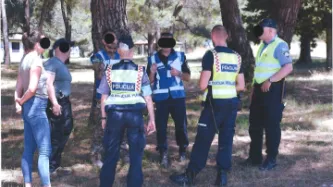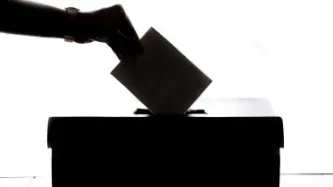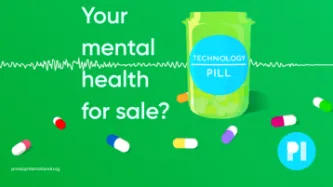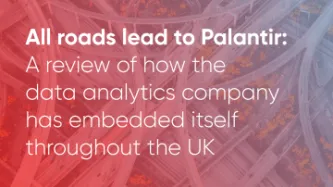Advanced Search
Content Type: Long Read
Tucked away in a discrete side street in Hungary’s capital, the European Union Agency for Law Enforcement Training (CEPOL) has since 2006 operated as an official EU agency responsible for developing, implementing, and coordinating training for law enforcement officials from across EU and non-EU countries.
Providing training to some 29,000 officials in 2018 alone, it has seen its budget rocket from €5 million in 2006 to over €9.3 million in 2019, and offers courses in everything from…
Content Type: Long Read
The European Union (EU) is the world’s largest donor of development aid, an instrumental supporter of democracies and peace around the world, and a powerful global force for reigning-in big tech and other exploitative industries. But since the 2015 migration crisis and with populist anti-immigration parties in power across the Union, it has focused this immensely powerful influence abroad squarely on managing flows of migration: using its economic, diplomatic, and security might to…
Content Type: Legal Case Files
Challenging the Drivers of Surveillance: EU Access to Documents Requests EUTF for Africa Disclosures
In September 2019, Privacy International filed 10 access to documents requests to EU bodies regarding the transfer of surveillance capabilities to non-EU countries. The requests seek documents providing information on the transfer of personal data, surveillance technology, training, financing, and legislation to non-EU countries. These are the disclosures we have received so far them the The European Union Emergency Trust Fund for stability and addressing root causes of irregular…
Content Type: Legal Case Files
In September 2019, Privacy International filed 10 access to documents requests to EU bodies regarding the transfer of surveillance capabilities to non-EU countries. The requests seek documents providing information on the transfer of personal data, surveillance technology, training, financing, and legislation to non-EU countries. These are the disclosures we have received so far from the European Union Agency for Law Enforcement Training (CEPOL).
Content Type: Legal Case Files
In September 2019, Privacy International filed 10 access to documents requests to EU bodies regarding the transfer of surveillance capabilities to non-EU countries. The requests seek documents providing information on the transfer of personal data, surveillance technology, training, financing, and legislation to non-EU countries. These are the disclosures received so far from EUROPOL.
Content Type: Legal Case Files
In September 2019, Privacy International filed 10 access to documents requests to EU bodies regarding the transfer of surveillance capabilities to non-EU countries. The requests seek documents providing information on the transfer of personal data, surveillance technology, training, financing, and legislation to non-EU countries. These are the disclosures so far from the European Data Protection Supervisor (EDPS).
Content Type: Legal Case Files
In September 2019, Privacy International filed 10 access to documents requests to EU bodies regarding the transfer of surveillance capabilities to non-EU countries. The requests seek documents providing information on the transfer of personal data, surveillance technology, training, financing, and legislation to non-EU countries. These are the disclosures we have received so far from the DG for Neighbourhood and Enlargement Negotiations (NEAR).
Content Type: Legal Case Files
In September 2019, Privacy International filed 10 access to documents requests to EU bodies regarding the transfer of surveillance capabilities to non-EU countries. The requests seek documents providing information on the transfer of personal data, surveillance technology, training, financing, and legislation to non-EU countries. These are the disclosures so far from the European External Action Service (EEAS).
Content Type: Legal Case Files
In September 2019, Privacy International filed 10 access to documents requests to EU bodies regarding the transfer of surveillance capabilities to non-EU countries. The requests seek documents providing information on the transfer of personal data, surveillance technology, training, financing, and legislation to non-EU countries. These are the disclosures so far from Frontex.
Copyright notice from Frontex: © Frontex, 2019 Reuse is authorised provided the source is acknowledged.…
Content Type: News & Analysis
PI is collaborating with The Carter Center election observation mission in the run up to and after Myanmar's national election on November 8th. The Carter Center is a US based NGO that has been invited to observe 111 elections in 39 countries since 1989. It has maintained a presence in Myanmar since 2013 when it's office was established in Yangon, and carried out long term observation for the 2015 election as well as 2020. The international election observer mission (IEOM) assesses the…
Content Type: Video
Find out more about the Mental Health Foundation here: https://www.mentalhealth.org.uk/
If you're worried about your mental health and want to try the NHS's mood self-assesment you can find it here: https://www.nhs.uk/conditions/stress-anxiety-depression/mood-self-assessment/
Read our work on mental health here: https://privacyinternational.org/campaigns/your-mental-health-sale
And you can support PI's work here: support.privacyinternational.org
You can listen and subscribe to the…
Content Type: Examples
Following the Trump re-election campaign's "block" purchase of Youtube homepage ad space - known as its masthead - in early 2020, Youtube has announced that it will be “retiring” reservations for full-day advertisements on its coveted homepage ad spot beginning in 2021, a change it said it communicated to advertisers earlier this year.
Instead, advertisers will only be able to buy that spot on a per-impression basis, making it harder for a single advertiser to dominate the…
Content Type: Examples
The Trump re-election campaign reportedly purchased advertising space on the Youtube homepage for early November, ensuring that Trump-affiliated political ads will be featured prominently on the platform prior to Election Day on November 3rd.
Ads on the Youtube masthead (as the video on top of the homepage is known) benefit from wide exposure and visibility. While the amount spent by the Trump campaign in Youtube advertising in the key dates prior to the election is unclear, masthead…
Content Type: Examples
On Election Day, there were some reports of Facebook users not seeing the "Why am I seeing this ad" information tab on political ads appearing on their newsfeeds.
Affected users were shown an error message stating "You can't use this feature right now. We limit how often you can post, comment or do other things in a given amount of time in order to help protect the community from spam. You can try again later. If you think this doesn't go against our Community Standards let us know…
Content Type: Examples
Less than a week before the election, the Democratic Party reported that Facebook's social media advertising systems had prevented the campaign from running some ads, allegedly resulting in the loss of more than $500,000 in potential campaign donations.
According to Facebook, the flaws resulted from a change in its political ads policy for the final week of the campaign. The policy change was intended to prevent political advertisers from uploading new ads in the week…
Content Type: Case Study
Por favor describe brevemente tu trabajo y/o activismo y las temáticas y cuestiones que ahí abordas.
Yo soy investigador en una organización dedicada a temas relacionados con la defensa del territorio y protección ambiental. Operamos en diferentes regiones, incluyendo regiones que han sido históricamente violentadas por temas del conflicto armado y que recientemente experimentan un pico en diferentes tipos conflictos ambientales. Nuestro trabajo consiste en…
Content Type: Case Study
Centro Prodh es una asociación sin fines de lucro que promueve los derechos humanos, y que ha acompañado algunos de los casos más emblemáticos en México. Quizá a raíz del impacto positivo de su trabajo, el centro se ha visto enfrentado a riesgos serios de vigilancia. En su declaración de fin de misión después de una visita a México, el anterior relator especial de la ONU sobre la situación de los defensores de derechos humanos, expresó preocupación en relación al Centro…
Content Type: Report
One name in tech has become embroiled in controversy: Palantir, a big-data analytics outfit.Palantir weren’t that well known in the UK until the Covid-19 pandemic, when they were thrust into the national spotlight after the UK Government granted them access to reportedly unprecedented quantities of NHS patient data for processing and analysis in response to the novel Coronavirus.Palantir isn’t just working with the NHS, yet despite their extensive work with the government could potentially be…
Content Type: Long Read
Privacy and security are both essential to protecting individuals, including their autonomy and dignity. Undermining privacy undermines the security of individuals, their devices and the broader infrastructure. People need privacy to freely secure themselves, their information, and fully enjoy other rights. However, a growing number of governments around the world are embracing hacking to facilitate their surveillance activities.
As a form of government surveillance, hacking presents…
Content Type: Examples
After a two year investigation into credit referencing agencies (CRAs) Experian, Equifax and TransUnion - initiated in part pursuant to a complaint filed by PI against Equifax and Experian in November 2018 - the ICO has published a report finding "widespread and systemic data protection failings" in the data broking sector. Pursuant to its investigation, the ICO issued an enforcement notice against Experian, requesting the company to achieve compliance with data…







